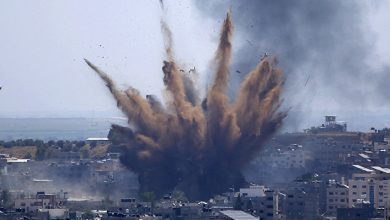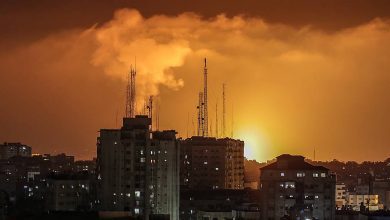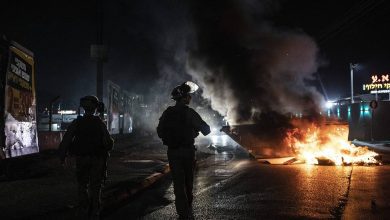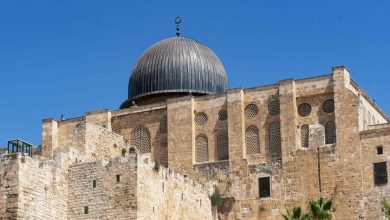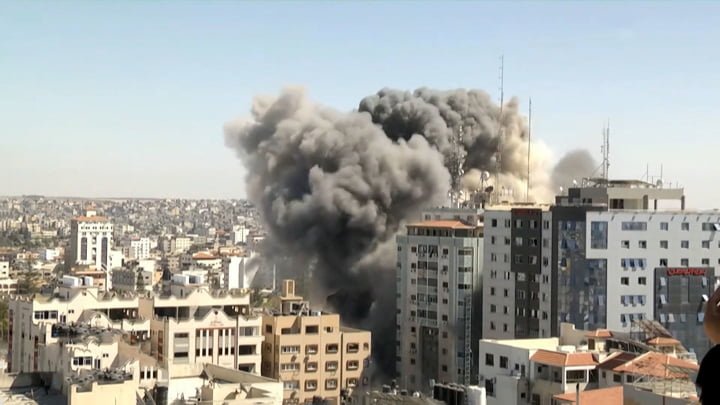
Gaza: funerals every day
US, WASHINGTON (ORDO NEWS) — Israel has been striking residential areas of the Palestinian enclave for the sixth day . The Jewish army is trying to destroy the civil and military infrastructure used by the Gaza Strip factions, primarily the Hamas movement (banned in Russia) and Islamic Jihad (banned in Russia). But as a result of the actions, the Israel Defense Forces are under attack - civilians who are unable to leave the war zone: the enclave is still under blockade.
In Gaza, there are a series of funerals every day, often with families accompanying them on their last journey. Already more than 140 people have died as a result of air and artillery strikes, and more than 30 children have been killed. Hospitals in the Gaza Strip are overcrowded, and about a thousand Palestinians have been injured. The film crew of Vesti Nedeli in Gaza visited one of the enclave’s hospitals.
“I was returning from the market, I almost came home, and a rocket hit near my house. There were many children and my neighbors nearby. Everyone was injured,” says one Gaza resident.
“I saw an explosion and hid behind a fence. Then I ran to help the injured people, and then a second bomb came. The fragments hit my neck and back,” says another local resident.
“We were sitting at home when the Israeli shelling began. My uncle’s family lived in a nearby house, the whole family was killed, only one little girl remained,” recalls one of the Arabs.
The stories of all the tragedies of the last days are very similar. Israel formally warns of impending air strikes via SMS, but Gazans have nowhere to run and almost nowhere to hide. The humanitarian situation in the sector is critical. There are already not enough blood products and medicines.
“The health care system in the Gaza Strip has suffered a lot, having had certain difficulties before. But now we are talking about a shortage of 45% of medicines. Moreover, there is not enough equipment, the blood bank is practically depleted. We will be in an extremely limited position if we do not get at least some We have turned to various international organizations. If prompt assistance is not provided, we will find ourselves in a critical situation, “said Ashraf al-Qedrah, an official spokesman for the Gaza Ministry of Health.
The day before, Jewish aviation literally demolished the international media center in the center of Gaza. Tel Aviv, of course, justifies itself, they say, a military object of the Hamas movement was placed in the building, but the blow looks like a deliberate desire to arrange an information blockade.
Egypt opened the Rafah border crossing to evacuate the seriously wounded. This is now the only way for those affected to leave Gaza.
While Tel Aviv tries to inflict maximum damage on both the military infrastructure of Hamas and civilian Gaza, the movement’s militant wing is in charge. Every day hundreds of unguided rockets are launched from the Gaza Strip towards Israeli cities. Slightly less than half of the shells overcome the Israeli missile defense system, under fire civilians in Jewish cities. Hamas leaders use uncompromising rhetoric primarily to draw the Palestinians who live in the West Bank into the conflict.
And the political leadership of the ruling movement in Gaza seems to have successfully achieved this goal. In Ramallah - clashes, in the West Bank - protests, Palestinians hold the flags of Hamas, the popularity of the Fatah movement (banned in the Russian Federation) is rapidly falling. Now, in the eyes of the inhabitants of the autonomy, it is the members of the militant wing of the movement in the Gaza Strip who are the main defenders of the Palestinian people.
In general, experts say that the possible result of Israeli strikes on the enclave is the seizure of power in the West Bank by the Hamas movement, and this is an extremely undesirable outcome for Tel Aviv. Israel has always found it easier to negotiate with the Palestinian Authority than with the movement in Gaza.
At the same time, Israel also received an aggravation on the borders with Arab countries. Palestinian refugees are trying to strike from Lebanon, Syria and Jordan. While the governments of these countries keep the situation under control, the Lebanese army even had to block roads in the south of the country. But this is only for now. No matter how the exacerbation ends, it is already clear that the period of relative stability in the Palestinian-Israeli conflict has ended for sure.
—
Online:
Contact us: [email protected]
Our Standards, Terms of Use: Standard Terms And Conditions.



